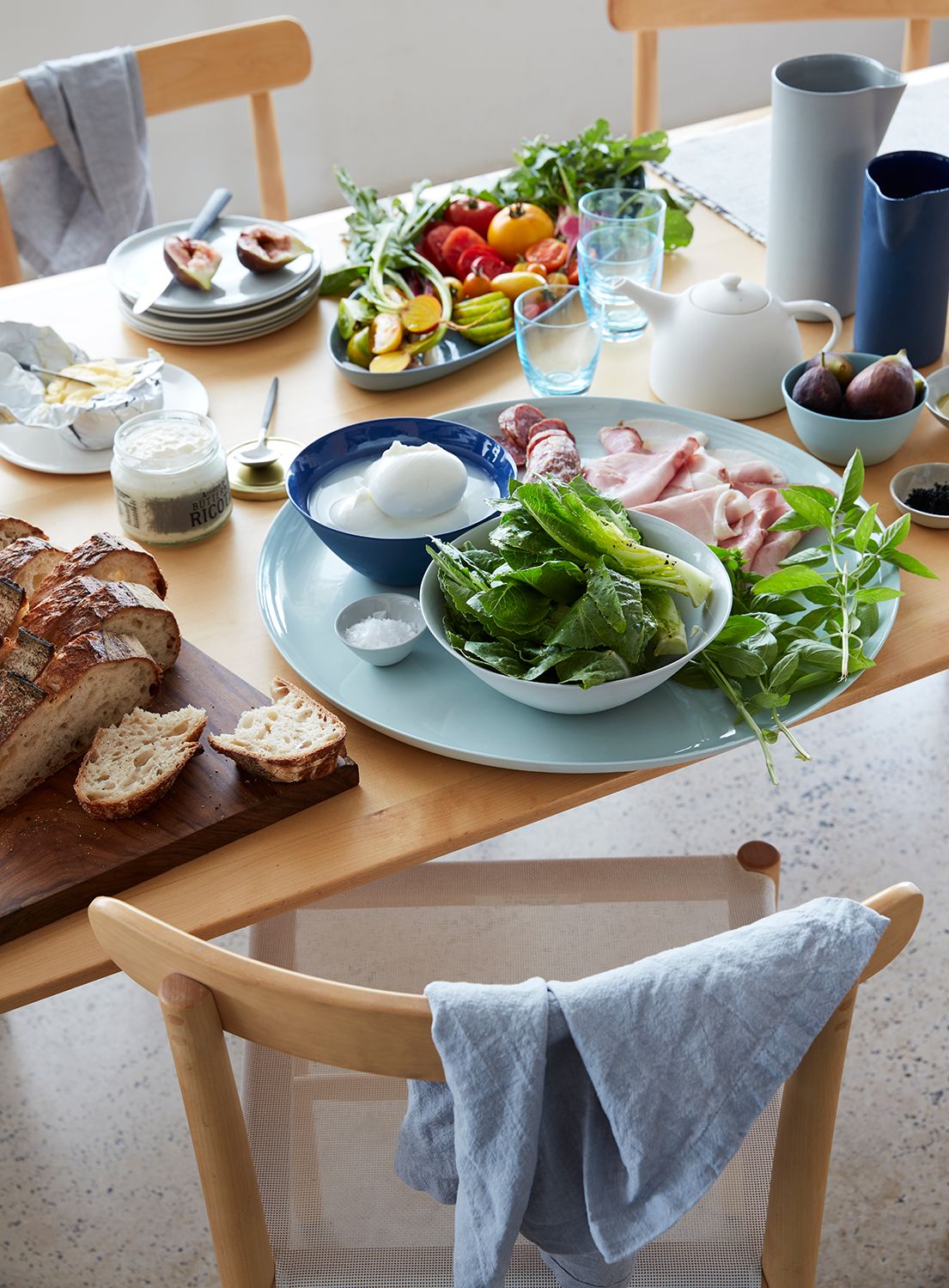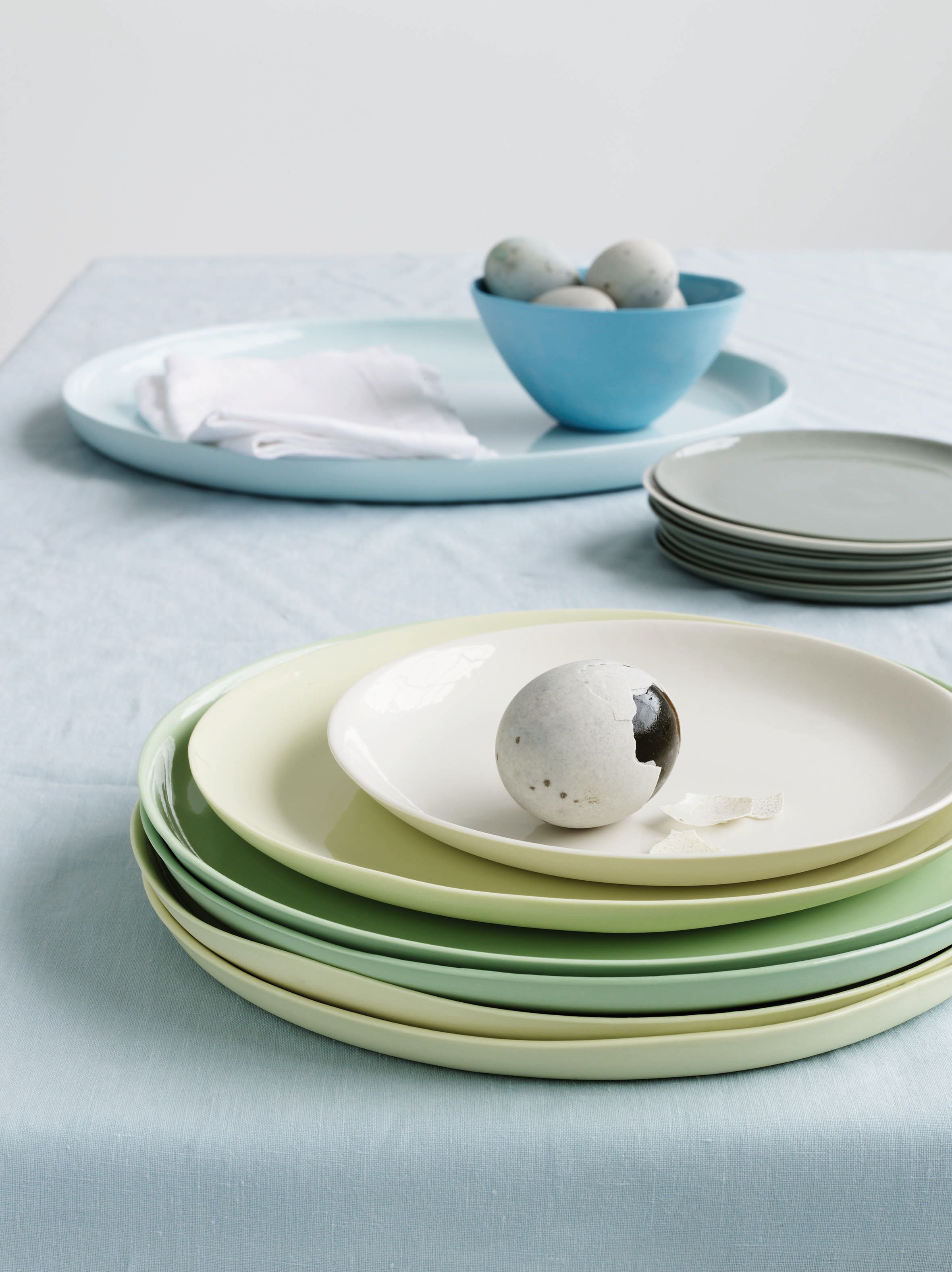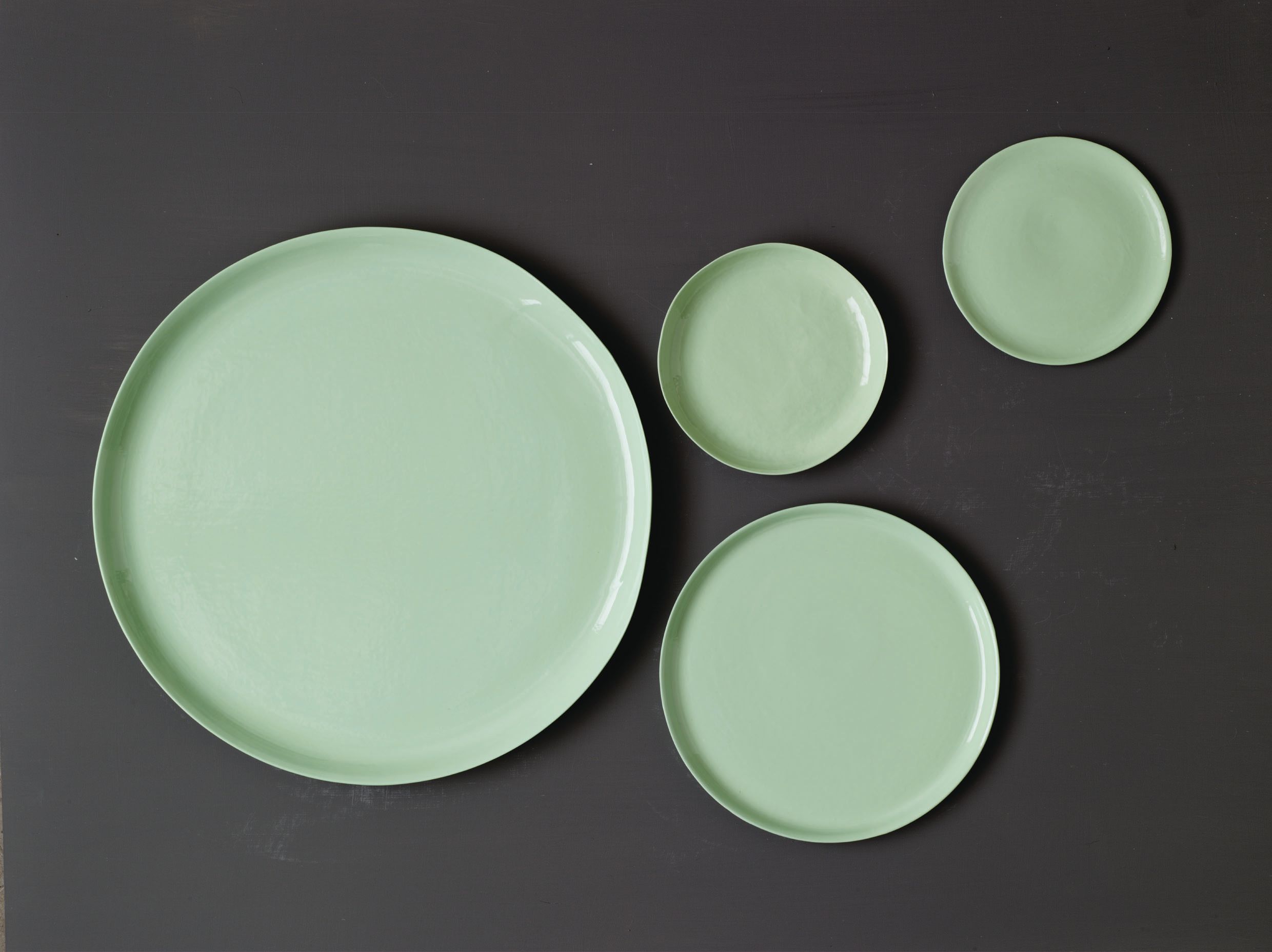How Big Are Dinner Plates? - Dimensions, Materials, and More
Understanding the dimensions, materials, and design of dinner plates to elevate your dining experience.
Understanding the dimensions, materials, and design of dinner plates to elevate your dining experience.

The standard size for dinner plates is 28 x 28 x 1.5 cm. While these dimensions are common, they can vary slightly depending on the brand or region.
Plate size influences food presentation and storage efficiency. Larger plates allow for creative presentation but may require more storage space in your kitchen.
While larger plates are great for elaborate meals, they can encourage oversized portions. It's important to balance aesthetics with practicality and health considerations.

Ceramic and porcelain are among the most popular materials for dinner plates, prized for their durability and timeless appeal. Glazed ceramic plates, for instance, are scratch-resistant and easy to maintain.
Glazing adds a protective layer to ceramic plates, minimizing scratches. However, gentle handling and proper storage are still recommended to preserve their quality.
Many ceramic plates, like those from Mud Australia, are kiln-fired at high temperatures, making them oven-safe and versatile for various cooking needs.
Round plates have historically been the most popular shape, largely due to their ease of production on spinning wheels and their practical design for stacking and serving.
Round plates are easy to hold, carry, and present beautifully on dining tables. Their classic shape also pairs seamlessly with a variety of table settings.
Choosing the right dinnerware set depends on your needs and style. A 16-piece set is an excellent starting point for a family or small gatherings.
Consider mixing and matching plates and bowls to create a unique and personalized set. Mud Australia offers a range of versatile designs that can be scaled for larger gatherings.
Brands like Mud Australia emphasize sustainability by using made-to-order production methods and supporting climate-neutral initiatives.
Handmade ceramics often feature slight irregularities in glaze or texture. These imperfections reflect the artisan nature of the product and add to its charm.
